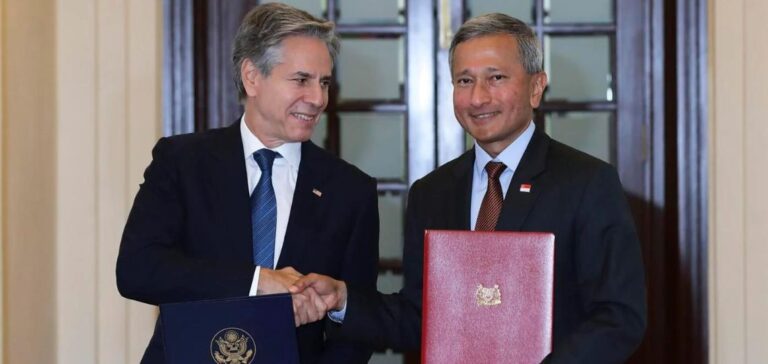Singapore, seeking to diversify its energy sources to ensure its energy security, is increasingly interested in nuclear power.
The agreement, signed by U.S. Secretary of State Antony Blinken and Singapore Foreign Minister Vivian Balakrishnan, establishes a framework for cooperation in the peaceful use of nuclear energy, known as the“123 Agreement”.
This partnership gives Singapore access to US technologies and expertise in this field, strengthening its ability to explore innovative energy options.
The agreement builds on long-standing collaboration between the two nations in the civil nuclear field, and reaffirms their mutual commitment to nuclear non-proliferation.
It paves the way for the wider adoption of advanced nuclear technologies in Singapore.
Benefits for Singapore
Singapore, a regional financial center and a key player in the global semiconductor industry, currently relies on oil and natural gas for its energy needs.
The introduction of nuclear power offers a stable and diversified alternative, essential for guaranteeing the country’s energy security.
The 30-year agreement will enable Singapore to benefit from American expertise in nuclear technologies.
In addition, Singapore will join a U.S. State Department program to gain a better understanding of modular nuclear reactors and other advanced nuclear technologies.
Regional impact and outlook
With this agreement, Singapore joins 22 other countries and two international institutions that have signed 123 Agreements with the USA, including China, Indonesia, the Philippines and Vietnam.
This cooperation strengthens relations between the USA and Southeast Asia in the field of nuclear energy, promoting safer and more innovative energy technologies.
For Singapore, the integration of nuclear power into its energy mix represents a major step forward.
By reducing its dependence on fossil fuels, Singapore can become a regional pioneer in innovative energy technologies, while making a significant contribution to the region’s energy security.
The agreement signed with the United States marks a key milestone in Singapore’s energy strategy.
By adopting advanced nuclear technologies, Singapore positions itself as a regional leader in the adoption of new energy technologies, thereby strengthening its bilateral relationship with the United States.






















